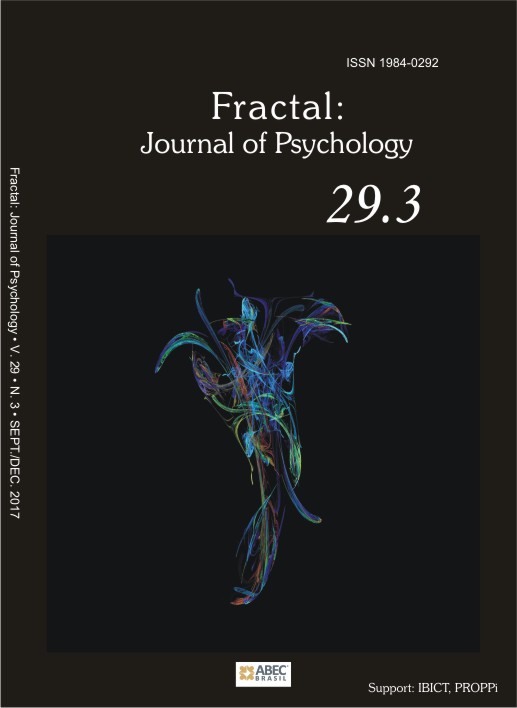UNESCO, notes about women and biopower in Brazil
DOI:
https://doi.org/10.22409/1984-0292/v29i3/1052Keywords:
UNESCO, Brazil, women, biopolitics, disciplineAbstract
This article interrogates the practices of the United Nations Educational, Scientific and Cultural Organization (UNESCO) towards brazilian women. Elaborates the Foucault´s analytics of racists and utilitarian discourses that promote discipline and securitarian regulations through education and culture. The concern with the violated rights in developing countries named by UNESCO and its designated partners, constitutes an important bulkhead to violence. However, guidelines and practices recommended by this multilateral Organization although potencially capable of producing specific improvements in the lives of some women, update neoliberal biopolitics justified by humanitarian and universalizing principles. Women are on UNESCO’s agenda from the perspective of threatened security and security, translated into public policies aimed at them and their children.
Downloads
References
DONZELOT, J. Polícia das famílias. Rio de Janeiro: Graal, 1986.
DREYFUS, H.; RABINOW, P. Michel Foucault – uma trajetória filosófica: para além do estruturalismo e da hermenêutica. Rio de Janeiro: Forense Universitária, 1995.
EWALD, F. Foucault, a Norma e o Direito. Lisboa: Vega, 1993.
FOUCAULT, M. Microfísica do poder. Rio de Janeiro: Graal, 1979.
FOUCAULT, M. História da sexualidade: a vontade de saber. Rio de Janeiro: Graal, 1988. v. 1.
FOUCAULT, M. Vigiar e Punir: a história da violência nas prisões. Petrópolis, RJ: Vozes, 1999a.
FOUCAULT, M Em defesa da sociedade. São Paulo: Martins Fontes, 1999b.
FOUCAULT, M. Estratégia, poder-saber. Rio de Janeiro: Forense Universitária, 2003. Coleção Ditos & Escritos, v. 4.
FOUCAULT, M. O nascimento da biopolítica. São Paulo: Martins Fontes, 2008a.
FOUCAULT, M. Segurança, território e população. São Paulo: Martins Fontes, 2008b.
FOUCAULT, M. A hermenêutica do sujeito. São Paulo: Martins Fontes, 2010.
GIACÓIA JÚNIOR, O. Sobre direitos humanos na era da bio-política. Kriterion: Revista de Filosofia, Belo Horizonte, v. 49, n. 118, p. 267-308, dec. 2008. doi: http://dx.doi.org/10.1590/S0100-512X2008000200002.
KOICHIRO, M. A UNESCO e os desafios do novo século. Brasília: UNESCO, 2002.
ORGANIZAÇÃO DAS NAÇÕES UNIDAS PARA A EDUCAÇÃO, A CIÊNCIA E A CULTURA. Nossa diversidade criadora: Relatório da Comissão Mundial de Cultura e Desenvolvimento. Brasília: UNESCO, 1997.
ORGANIZAÇÃO DAS NAÇÕES UNIDAS PARA A EDUCAÇÃO, A CIÊNCIA E A CULTURA. Cultivando vida, desarmando violências: experiência em educação, cultura, lazer, esporte e cidadania com jovens em situação de pobreza. Brasília: UNESCO, 2001.
ORGANIZAÇÃO DAS NAÇÕES UNIDAS PARA A EDUCAÇÃO, A CIÊNCIA E A CULTURA. Construção e identidade: as ideias da UNESCO no Brasil. Brasília: Jorge Werthein/UNESCO, 2002.
ORGANIZAÇÃO DAS NAÇÕES UNIDAS PARA A EDUCAÇÃO, A CIÊNCIA E A CULTURA. Por uma economia com face mais humana. Brasília: UNESCO, 2003.
ORGANIZAÇÃO DAS NAÇÕES UNIDAS PARA A EDUCAÇÃO, A CIÊNCIA E A CULTURA. Relatório Jacques Delors. Educação para o século XXI: um tesouro a descobrir. Brasília: Cortez/MEC/UNESCO, 2006.
ORGANIZAÇÃO DAS NAÇÕES UNIDAS PARA A EDUCAÇÃO, A CIÊNCIA E A CULTURA. Mais ética, mais desenvolvimento. Brasília: UNESCO, 2008.
PASSETTI, E. Direitos humanos, sociedade de controle e a criança criminosa. In: COMISSÃO DE DIREITOS HUMANOS/CRP-RJ. (Org.). Direitos humanos? O que temos a ver com isso? Rio de Janeiro: CRP-RJ, 2007. v. 1, p. 63-81.
Downloads
Published
How to Cite
Issue
Section
License
Authors publishing in this journal agree to the following terms:
- Authors retain copyright and grant the journal the right of first publication, with the work simultaneously licensed under the Creative Commons Attribution License allowing sharing of the work with acknowledgement of authorship of the work and initial publication in this journal.
- Authors are permitted to enter into additional contracts separately for non-exclusive distribution of the version of the work published in this journal (e.g., publishing in an institutional repository or as a book chapter), with acknowledgment of authorship and initial publication in this journal.

This work is licensed under a Creative Commons Attribution 4.0 International License.
To the extent possible under the law, Fractal: Journal of Psychology has waived all copyright and related rights to the Reference Lists in research articles. This work is published in: Brazil.
To the extent possible under law,Fractal: Journal of Psychology has waived all copyright and related or neighboring rights to Reference lists in research articles. This work is published from: Brazil.







